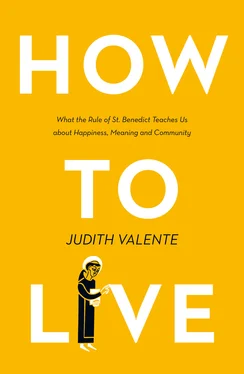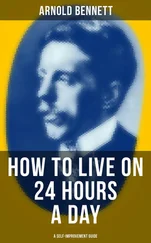The Rule of St. Benedict invites an alternative vision. It is summed up in a single line from one of the shortest chapters in The Rule: “The Good Zeal of Monastics.” Try to be the first to show respect to the other, supporting with the greatest patience one another’s weaknesses of body or behavior. This is the good St. Benedict says we are called to model. He asks us to nurture it zealously, with fervent love .
One of the most critically acclaimed fantasy films in recent years was a piece of science fiction called The Arrival . It is the story of beings from outer space who arrive on earth, igniting a wildfire of fear across the planet. Their language is unlike anything spoken or written, and it includes a unique perception of time. An expert linguist is tapped to initiate contact. If she cannot draw out the visitors’ true intentions, the nations of the world will pool their weaponry and launch an all-out assault.
To show her own peaceful motives, the linguist enters the spacecraft, and at considerable risk to herself, removes her biohazard suit. She approaches the strange, multi-limbed creatures with palms open and outstretched. Her body language demonstrates she isn’t there to attack. Slowly, by immersing herself in the aliens’ language, she uncovers their purpose. Earth escapes an interplanetary disaster, not by superior weaponry or even acts of daring, but by bravely communicating with those we don’t at first understand. Success through empathy. In many ways, the film mirrors the parallel society the Benedictine Rule calls us to forge. One where the ability to listen, to communicate, and ultimately to understand delivers us from self-destruction.
“Who will dwell in your tent, O God? Who will find rest in your holy mountain? (Ps 15:1) …” “Those who walk without blemish and are just in all dealings; who speak truth from the heart and have not practiced deceit; who have not wronged another in any way, nor listened to slander against a neighbor.” (Ps 15:2–3)
—FROM THE PROLOGUE
The Benedictine Rule is as much a text for the spiritual beginner as it is for the spiritually mature. Some have described it as a guidepost. I like to think of it as a railing I can grab onto to steady myself when I encounter a dark, uncertain path. My own journey toward The Rule was hardly a direct route. A friend who is a Presbyterian minister recommended the text to me at a time when I had just moved back to the US from Europe and was embarking on a new phase of my writing career. He thought it might satisfy some of the spiritual unrest I was experiencing over whether I was doing enough with my life.
I thought it contained some lovely and thought-provoking passages. Listen with the ear of the heart … Day by day, remind yourself you are going to die. Hour by hour, keep careful watch over all you do … Your way of acting must be different from the world’s way. There was also enough in the text that was strange and puzzling to prompt me to set it aside for nearly a decade. It wasn’t until I saw The Rule lived in the daily context of a contemporary Benedictine monastery that I realized: here was the path I had been seeking.
Atchison, Kansas, is a city I had never thought about, much less visited, before I received an invitation to give a talk on Touching the Sacred through Poetry at the retreat center of Mount St. Scholastica, one of Atchison’s two Benedictine monasteries . The offer came at a pivotal time for me, both professionally and personally. I had been married only two years. While my marriage was a blessing, I struggled as a second wife to forge a relationship with my two adult stepdaughters.
My first book, Twenty Poems to Nourish the Soul, had just come out, and that was another gift. But it, too, came with stresses. I began receiving requests from across the country to lead poetry workshops and retreats on weekends, all the while working my day job at the time as a contributing correspondent for PBS-TV and Chicago Public Radio. I arrived at Mount St. Scholastica on a Saturday night exhausted—physically, mentally, and emotionally. In fact, I felt like a fraud. I wondered how I was going to stand in front of a retreat group the next morning and talk about nourishing the soul when I hadn’t fed my own soul a decent meal in weeks.
The morning I was to give my talk, I sat alone in the monastery’s oak-lined chapel. Sunlight streamed in through the chapel’s distinctive blue stained glass windows. Silence saturated the room. I looked up at the window in front of me. There was St. Benedict with outstretched arms. Surrounding him were some words in Latin: omni tempore silentio debent studere. I reached back to the Latin I had studied in college and did a rough translation: at all times, cultivate silence.
Suddenly, the paradox I had been living was staring me the face. I had been running around the country talking and talking, trying to help other people live a more contemplative life, when my own life was missing moments of silence and solitude in which I could simply listen and be.
The Mount sisters seemed keepers of a kind of secret. They balanced work with leisure, laughter with silence, work with prayer. I discovered that everything they do—from the way they eat to how they wash dishes, speak to one another, care for their sick, pray in chapel, and go about their daily work—comes from St. Benedict’s Rule . Though I didn’t know it then, the line that had mesmerized me that morning in the chapel— omni tempore silentio debent studere —comes from The Rule . What these sisters had, I wanted. I arrived at Mount St. Scholastica a poetry expert of sorts. I left a student of The Rule .
“There are days that define your story beyond your life,” the female linguist in The Arrival says at the beginning of the film. I felt that all of my past somehow had led me to this monastery on a hill and that the Benedictine Rule was reaching out to me from the ages.
Over the course of the next three years, I returned repeatedly to Mount St. Scholatica, mining The Rule for ways I could apply monastic values and practices to my daily life as a wife, stepmother, writer, and journalist. Benedict asks a pointed question in the book’s prologue: Is there anyone here who yearns for life and desires to see good days ? I wanted to shout, “Yes. Me. Here. Now!”
What, dear brothers and sisters, is more delightful than this voice of the Holy One calling to us. See how God’s love shows us the way to life.
—FROM THE PROLOGUE
To delve deeply into The Rule is to discover just how astutely Benedict was writing in the 6th century. Recent discoveries about how the brain works buttress ideas he espoused before neuroscience was even a word. Paul Zak is an economist and brain researcher who has studied the effect on the human psyche of a powerful hormone called oxytocin. This is the chemical released in lovemaking, in women who have just given birth, as well as in people who have just acted in some way that benefits others. Zak calls oxytocin “the morale molecule.”
Using a variety of research experiments, Zak found that those who give usually end up receiving in return. One person’s generosity can even increase the oxytocin levels in another. In other words, human beings appear hardwired for community. We prosper most when we extend trust and receive it in return. The economic models we learn in MBA programs would have us believe the opposite—that self-interest is the fundamental human motivator. Zak, by contrast, found that trusting and exhibiting generous behavior leads to reciprocal generosity and trust.
“The most important factor in determining whether or not a society does well or is impoverished,” Zak concluded, “is not natural resources, education, quality health care, or even the work ethic of its people. What matters most in determining outcomes is actually trustworthiness—a moral consideration.”
Читать дальше












